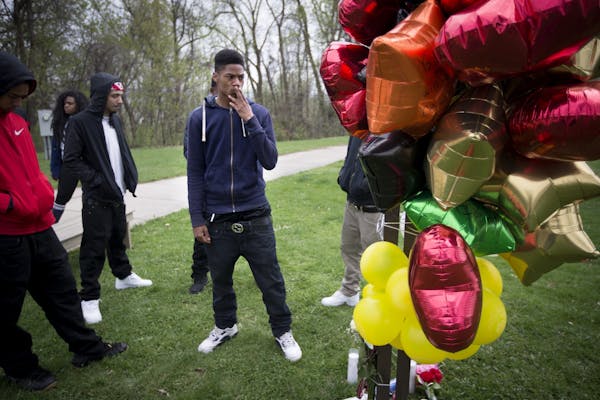The stage was set for a discussion on equity in St. Paul.
Mayor Chris Coleman delivered his 11th State of the City speech Tuesday at the Penumbra Theatre in front of the set of the play "Sunset Baby," the story of the daughter of former black revolutionaries. And much of the mayor's address centered on making the city a better place to live for an increasingly diverse population.
"We are strong," Coleman said. "We will be at our strongest when everyone is strong in this community. Let us work together to reach that goal."
He said the city should use data to identify barriers to equity citywide and announced plans to create an "online data portal" in partnership with the Sunlight Foundation. About 19 percent of the city's staff members are people of color, compared with about 40 percent of St. Paul's population, Coleman said. He said his 2017 budget will include more resources to recruit candidates of color.
"It's refreshing to hear that we're starting to focus on those who have been left out," Jeffry Martin, head of the NAACP in St. Paul, said after the speech. But he noted that members of the business community also must buy in to the efforts.
"The best social program is still a job," Martin said, and getting young people into the workforce is particularly critical given the violence that has broken out in the city over the past week, he said.
Two people were killed and six people were injured in shootings Sunday and Monday, and there have been more than 30 reports of shots fired since Friday. Coleman said he will call for an end to the "explosion in gun violence" at an event Wednesday.
Changes highlighted
The mayor's address also reflected on the city's achievements, including the proposed Minnesota United soccer stadium, various housing developments and after-school programs. St. Paul Promise Neighborhood, which coordinates summer programs for children and other educational initiatives, has seen substantial growth in the number of kids it serves, from 127 children five years ago to more than 2,000, Coleman said. This summer it will debut a Hmong dual language program, he said.
The investment in the Green Line light rail has paid off, Coleman said. The Metropolitan Council announced Tuesday that it has tracked $4.2 billion worth of development along the line in Minneapolis and St. Paul.
The mayor contrasted the addition of the Green Line with the way Interstate 94 was created. The interstate tore through the Rondo neighborhood, once the heart of the city's African-American community. Coleman said he has apologized to the Rondo community for the government's role in uprooting families and is helping fund the Rondo Commemorative Plaza and Garden.
Coleman stepped aside at several points during his speech, and in a nod to the event's setting and the theme, an actor took the stage and read excerpts from three of August Wilson's plays. Performers closed the event singing the Doobie Brothers' "Takin' It to the Streets."
Art and music are at the center of the African-American experience, said Lou Bellamy, founder of the Penumbra Theatre, and he was excited to see the mayor using those tools to give meaning to his message. The location of the address also was significant, Bellamy said.
"It being told from that stage is an important signal. It's a symbol of a kind of solidarity he wants to build, or seems to," Bellamy said, though he added that "the proof is in the pudding."
Jessie Van Berkel • 612-673-4649
Minneapolis City Council declines to endorse Frey's Third Precinct plan
Minneapolis will bid to host Sundance Film Festival

Clash brewing over proposed Lino Lakes development that includes mosque
In heated western Minn. GOP congressional primary, outsiders challenging incumbent

